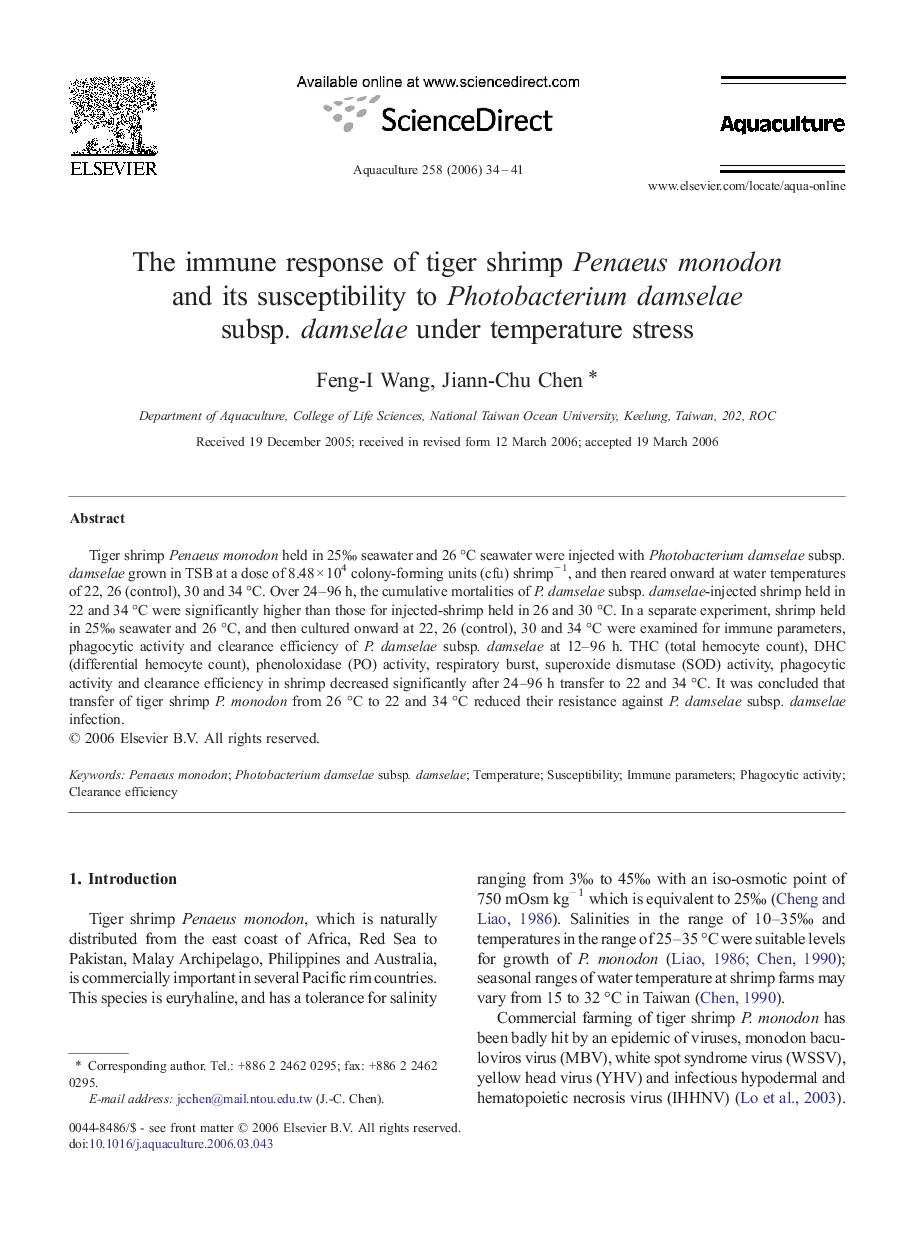| Article ID | Journal | Published Year | Pages | File Type |
|---|---|---|---|---|
| 2425811 | Aquaculture | 2006 | 8 Pages |
Tiger shrimp Penaeus monodon held in 25‰ seawater and 26 °C seawater were injected with Photobacterium damselae subsp. damselae grown in TSB at a dose of 8.48 × 104 colony-forming units (cfu) shrimp− 1, and then reared onward at water temperatures of 22, 26 (control), 30 and 34 °C. Over 24–96 h, the cumulative mortalities of P. damselae subsp. damselae-injected shrimp held in 22 and 34 °C were significantly higher than those for injected-shrimp held in 26 and 30 °C. In a separate experiment, shrimp held in 25‰ seawater and 26 °C, and then cultured onward at 22, 26 (control), 30 and 34 °C were examined for immune parameters, phagocytic activity and clearance efficiency of P. damselae subsp. damselae at 12–96 h. THC (total hemocyte count), DHC (differential hemocyte count), phenoloxidase (PO) activity, respiratory burst, superoxide dismutase (SOD) activity, phagocytic activity and clearance efficiency in shrimp decreased significantly after 24–96 h transfer to 22 and 34 °C. It was concluded that transfer of tiger shrimp P. monodon from 26 °C to 22 and 34 °C reduced their resistance against P. damselae subsp. damselae infection.
